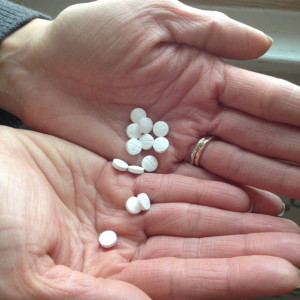My college kid is home resuming a vampire’s sleep schedule for another week-ish and then off to her study abroad program in Paris. My high schooler is getting ready for his junior prom, which really translates into using my credit card and acting like I don’t understand the significance of this social event. He also has finals wrapped around Memorial Day weekend, which makes me want to swear. My middle schooler has checked out of school because he is “graduating” from 8th grade, and we made the mistake of telling him that 8th grade didn’t really count as a way to help him cope with all the talk about high school expectations.
I am so done.
But May is Asian American Pacific Islander Heritage Month, and May 10 was AAPI Mental Health Awareness Day. May is also host to Mother’s Day, which for some of you is Instagram worthy and for the rest of us requires deep breathing. May is my month. All of me. #intersectionality
I live in the Midwest so May being the month of my people is cruel. May should be the peak of spring, but here it’s frost advisories, overcast days upon overcast days, rain that carried over from April, and a few days of glorious spring and “sprummer” – days that start like spring but then heat up to the 80s causing all tulips to bloom and wilt within a 24-hour period. I don’t know why May was selected for AAPI Heritage Month, but I’m not actually going to share any tidbits about AAPIs because we have Google.
Today is about being all of me. All of you. And how that can be simultaneously empowering and exhausting because when you are integrated and whole, you also have a sense of when things aren’t working, aren’t in sync, aren’t “right.” Right?
Today I was supposed to be somewhere else training great people to do important things that I am passionate about. But I’m not there. I’m here in my home office, in my pajamas because they are comfy and I don’t have to leave the house quite yet. I’m here because all of me – the Jesus-loving recovering Korean American child of immigrants perfectionist who swears and drinks a lot more than she ever did in her “younger” years, working mother of three who doesn’t have it all but has a lot, writer, speaker, coffee drinker – was given the permission to opt out.
So I did. I felt like a failure because the model minority myth is a tough one to remove. I felt like a failure because my own inability to manage my anxiety was getting in the way. I felt like a failure because aspiring Christian speaker writer types do not decline/back out of speaking invitations. I felt like a failure.
And then I didn’t. I woke up today looking forward to seeing updates from friends doing their thing and grateful I could do mine, unshowered in my pjs. And I want to let some of you, dear readers, know it’s OK. You can opt out of good opportunities. You can even opt out of great opportunities. Yes, some of them truly are once in a lifetime, while others may come around again.
Be you.
Be.
